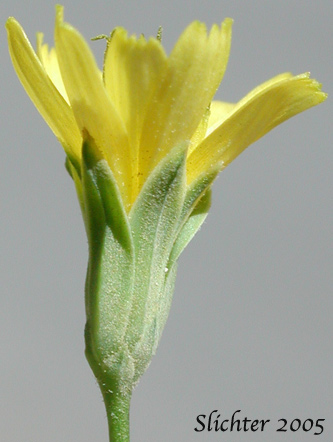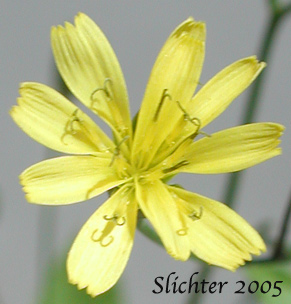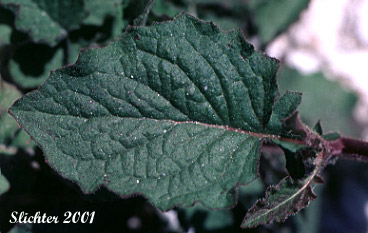

 Characteristics:
Characteristics:
Nipplewort is an annual weed with one erect stem from 15-150 cm high. The herbage varies from covered with coarse or stiff hairs that aren't sharp to largely hairless. The basal and lower stem leaves have blades that are thin, and generally measure from 2.5-10 cm long and 2-7 cm wide. The blades are variable ranging from ovate to ooobtuse, rounded or occassionally pinnatifid with a large, ovate terminal segment. The leaves generally are reduced greatly in size upwards on the stem.
The inflorescence is a corymb or panicle found at the tips of the branches. Each dandylion-like flower head contains about 13 yellow flowers. The Involucre is usually 5-8 mm high with 8 narrow and firm bracts which are keeled above their bases.
Habitat:
Nipplewort is fairly common in disturbed places such as roadsides, waste areas, fallow fields, gardens and yards. It may also escape into disturbed, open woods.
A Eurasian weed, nipplewort is widely found throughout the United States and Canada. In the Pacific Northwest, it is more common on the west side of the Cascade Mts.
In the Columbia River Gorge it may be found between the elevations of 100'-1700' from near Troutdale, OR east to near Hood River, OR.
